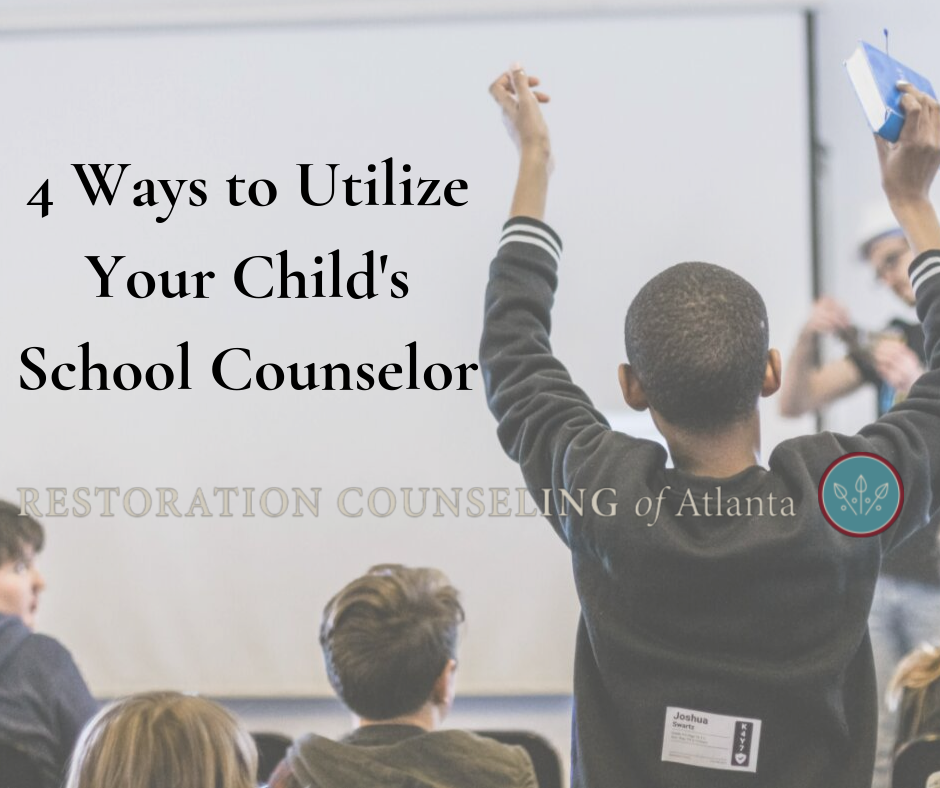Every public (and most private) school in the United States has at least one school counselor employed on their staff. School counselors’ roles have changed significantly over the past 30 years. Previously, professional school counselors were referred to as guidance counselors. They were mainly present in high schools, and their primary role was helping older students figure out their career paths.
Training
Currently, all professional school counselors must have a master’s degree in school counseling. To obtain this master’s degree, they must complete two years of coursework. They also must clock a minimum of 600 hours of experience in a school setting, with 240 hours of those being direct contact hours working with students. School counselors are trained and certified to work with all grade levels: elementary school, middle school, and high school.
If you have a child in the school system, you may be missing out on all that school counselors can offer your child.
Here are 4 ways you can utilize your student’s school counselor:
-
Ask them to advocate for your child in the classroom
School counselors’ jobs include offering support in and out of the classroom in order to support your child’s healthy learning. They collaborate with teachers and other faculty to come up with developmentally appropriate learning plans. Their goal is to help your student succeed in the classroom. If your child has a learning or developmental disability, the school counselor can assist in establishing an IEP. An IEP is an individualized education program that is designed specifically for your child and his or her unique needs. The school counselor can be a powerful and helpful advocate in the IEP process.
-
Set up an appointment for your student (or encourage your child to set up his or her own appointment) to see the school counselor one on one
Most counselors still do a lot of academic advising, class enrollment, and other administrative tasks, but they are also trained to work as mental health counselors as well. They take classes in their graduate programs such as counseling theories, group counseling, and counseling skills. Though a school counselor’s time is limited, they are equipped with the skills to help students navigate personal, academic, and emotional struggles. Your child’s school counselor can meet one on one with your child to offer some individual counseling. This can be helpful with issues that can be discussed within a limited amount of time. Having someone to talk to while your student is at school can be a welcome reprieve and source of support within the often stressful school environment.
-
Inquire about group counseling options for your student
School counselors often offer groups for students to learn and grow alongside their peers. There may be groups for children of divorced parents, grief support groups, or new student groups. The school counselor may also offer groups to help students learn different skills such as groups to help improve communication, study skills groups, cultural awareness groups, emotional awareness groups, anger management groups, and more. These kinds of groups can help your child learn invaluable regulation skills while forming bonds with his or her classmates.
-
Talk to your student’s school counselor about outside resources and referral options
If the school counselor cannot meet your due to time constraints, availability, or the type of issues your student may be facing, school counselors refer out to resources in the community. Your student’s school counselor should know of a wide variety of accessible resources. These include counselors, psychiatrists, psychologists, inpatient centers, free or reduced-cost therapy options, play therapists, occupational therapists, speech therapists, behavioral specialists, and more. They can also write a referral letter or contact the outside facility directly. This may help speed up the process of getting your child the first appointment. You can sign a release form allowing your student’s school counselor to speak and collaborate with the new health professional. This can give the new doctor or counselor valuable insight to begin working with your child more quickly and effectively.
Unique Role of a School Counselor
The number one role of the school counselor is to advocate for their students, and therefore your child. Their mission statement is to offer academic, emotional, and social support for all students, regardless of background or social standing. They have a unique understanding of the stressors your child is facing every day within his or her school environment. Your child’s school counselor can be a valuable resource for you as a parent as you navigate the educational and social world of each school level with your child.
Action Steps
Interested in learning about opportunities to enrich your child’s academic and social experience within the school setting? Would you like to know more about opportunities for your child to build skills that will translate to the classroom and beyond? Research the available opportunities in the counseling department on your school’s website or contact your student’s school counselor.
 Written by: Hannah Fain, New Client Coordinator and Office Administrator
Written by: Hannah Fain, New Client Coordinator and Office Administrator
admin@restorationcounselingatl.com, ext. 153
Hannah is the point person for all new client inquiries and questions at Restoration Counseling of Atlanta. She also sends out our monthly newsletter and does other behind the scenes tasks. She is currently in graduate school to earn her master’s in school counseling at Mercer University at the Atlanta campus.

